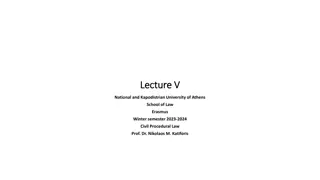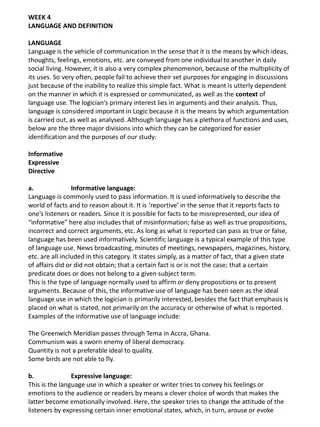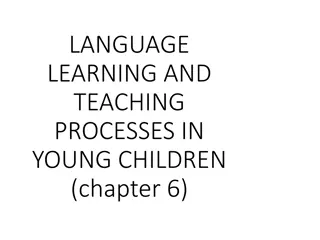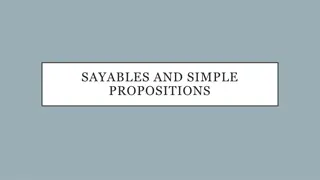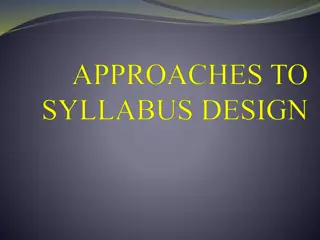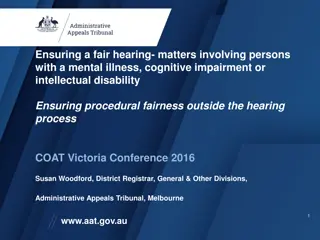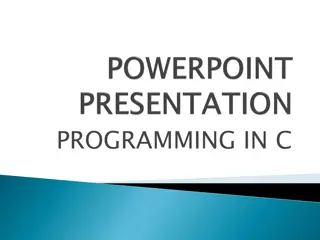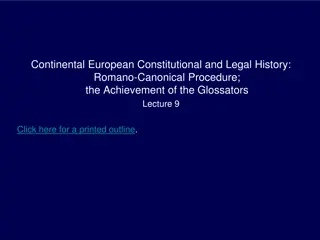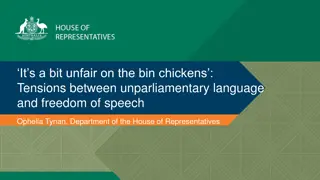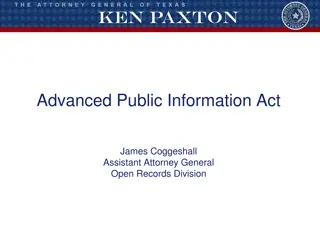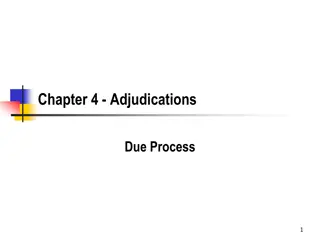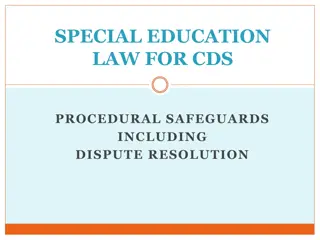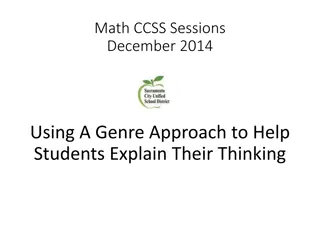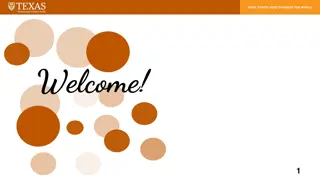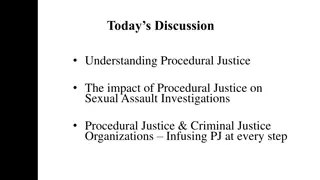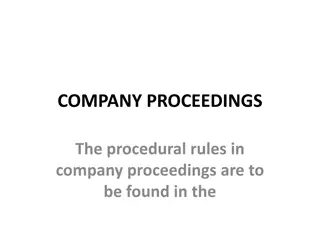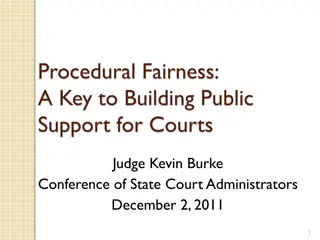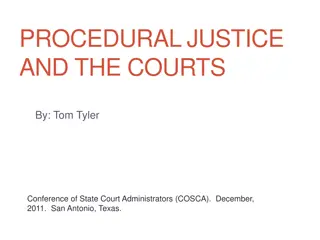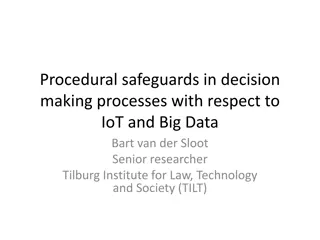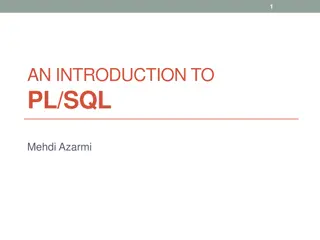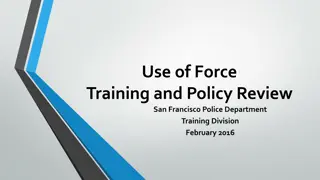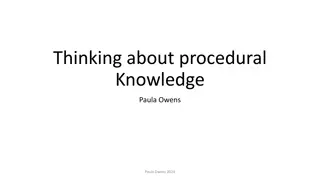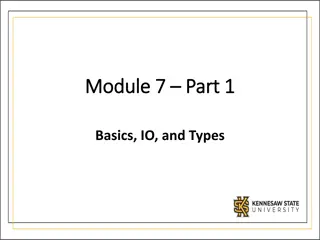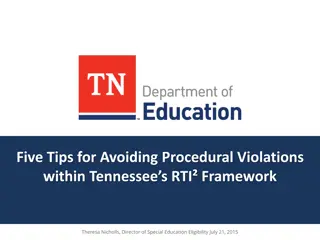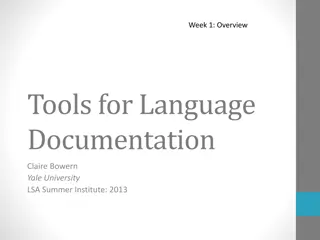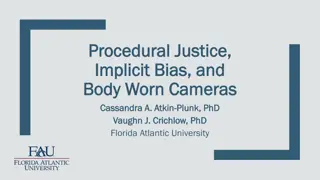Understanding Procedural Safeguards for Students with Disabilities
This information delves into the procedural safeguards for students with disabilities receiving special education services, covering topics such as laws governing procedural safeguards, parents' rights and responsibilities, abbreviation glossary, and the required Notice of Procedural Safeguards unde
1 views • 37 slides
Career Opportunities and Challenges in Translation & Interpreting Pedagogy Post-Pandemic
The APTIS 2022 conference explores new avenues in Translation and Interpreting (T&I) pedagogy amidst a changing landscape. Dr. Bego A. Rodriguez highlights emerging roles for T&I graduates. The context reveals a decline in language learning in the UK, impacting the Language Service Industry. The UK'
0 views • 13 slides
Language Study Community – Enhance Your Language Skills
Joining a Language Study Group is a fantastic way to take your language learning to the next level. By leveraging the power of Group Study, you can immerse yourself in the language, enhance your understanding, and build confidence in your speaking abilities. Read full article \/\/explainlearning.com
1 views • 3 slides
Academic Language Demands and Supports in Instructional Planning
Academic Language Demands and Supports are crucial in educational settings to ensure comprehension and usage of language by students. This content discusses embedding language demands in lesson plans, providing language supports, and peer review activities to enhance academic language skills. The fo
6 views • 10 slides
The Significance of Media in Language Learning
Media plays a crucial role in language learning by raising awareness of the ideology behind linguistic structures and providing valuable information on society and culture. Linguists are drawn to media language for research purposes and to understand its impact on language use and attitudes. Media s
11 views • 5 slides
Understanding Translation: Key Concepts and Definitions
Translation involves transferring written text from one language to another, while interpreting deals with oral communication. Etymologically, the term "translation" comes from Latin meaning "to carry over." It is a process of replacing an original text with another in a different language. Translat
11 views • 76 slides
Language and Communication in Society: Understanding Interactions
Explore the intricate relationship between language and society through lectures focusing on language in interaction, power dynamics, language contact and change, public space discourse, linguistic landscaping, and more. Delve into the shift from structural linguistics to societal communication, red
6 views • 28 slides
Proceedings for Provisional Remedies in Civil Procedural Law
Greek legal theory distinguishes between conservatory and regulatory provisional remedies to secure substantive rights or provisionally arrange disputed situations. These remedies are constitutionally guaranteed and granted under specific substantive and procedural conditions. The procedure involves
0 views • 14 slides
Understanding Language: Informative, Expressive, and Directive Uses
Language serves as a vital medium for communication, allowing the conveyance of ideas, thoughts, and emotions. It is a complex phenomenon with diverse uses. This text delves into the three major divisions of language use - informative, expressive, and directive. Informative language conveys facts, w
3 views • 6 slides
Language Learning and Teaching Processes in Young Children
Development of language in young children is influenced by various factors such as their cultural and linguistic environment, unique characteristics, and interactions with adults. Optimal language development requires language stimulation from the environment. Varied cultural practices impact langua
1 views • 51 slides
Understanding Language in Stoicism: Significance and Corporeality
Language in Stoicism plays a crucial role in the process of assenting to impressions by focusing on corporeality, reason, and truth. It distinguishes between the mundane vocal sounds, articulated speech, and significant language to convey meanings effectively. The significance of language lies not i
0 views • 13 slides
Understanding Language Teaching Syllabus: Integration, Theory, and Approaches
Language Teaching Syllabus involves the integration of subject matter and linguistic elements, guided by theories of language and learning. Various approaches like Grammatical, Situational, Communicative, and Analytic are used to structure syllabi. Breaking language into parts aids in sequential lea
1 views • 28 slides
Enhancing Language Learning Across the Curriculum in B.Ed. 1st Year Course
Language Across the Curriculum (LAC) emphasizes that language learning should occur across all subjects, not just in language classrooms. It highlights the importance of incorporating language development into every learning activity, fostering multilingualism in schools. Language plays a crucial ro
2 views • 34 slides
Ensuring Fair Hearing in Legal Proceedings for Individuals with Disabilities
Susan Woodford discusses the importance of procedural fairness in legal proceedings involving individuals with mental illness, cognitive impairment, or intellectual disability. She emphasizes the need for flexibility in adopting fair procedures tailored to each case, including providing information
0 views • 7 slides
Introduction to Programming in C Language
C language is a procedural programming language developed by Dennis Ritchie in 1972. Known for its low-level access to memory, simple keyword set, and clean style, C is ideal for system programming tasks like operating system and compiler development. This article covers key aspects of C language, P
0 views • 12 slides
Overview of EPPO and Procedural Rights in EU Law
This material focuses on the European Public Prosecutor's Office (EPPO) and its adherence to procedural rights within the framework of EU law. It covers the provisions of the EPPO Regulation related to procedural rights, including principles of rule of law, impartial investigations, and judicial rev
0 views • 22 slides
Evolution of Procedural Law in Continental European Legal History
The journey of procedural law in Continental European legal history, from the challenges faced by glossators in creating Romano-canonical procedure to the discussions on canonic procedure in canon law. Explore the intricacies of legal procedure development and the influences of historical texts such
0 views • 36 slides
Speech and Language Developmental Milestones: A Bilingual/Multilingual Perspective
Speech and language developmental milestones are crucial for children, regardless of their home language. These milestones encompass receptive language, expressive language, pragmatics, and articulation and phonology. Understanding how a child hears and talks from birth to one year is essential, as
1 views • 23 slides
Unparliamentary Language and Freedom of Speech: A Discussion on Tensions
The article delves into the debate surrounding unparliamentary language and its impact on freedom of speech within parliamentary settings. It explores historical context, procedural laws, types of unparliamentary language, practical examples, and instances of personal reflections, allegations of cor
0 views • 10 slides
Open Records and Requests Process Overview
This presentation provides valuable information on the Advanced Public Information Act, open records letter rulings issued between 2001-2017, withdrawing requests for rulings, requesting previous determinations, and procedural obligations under Section 552.301. It covers reasons for withdrawal, comm
0 views • 35 slides
Exploring Due Process: Substantive and Procedural Dimensions
Dive into the intricacies of substantive and procedural due process, understanding the limits on government regulation and the significance of fair procedures in affecting individual rights. Explore the evolution of due process from historical perspectives to modern interpretations, reflecting on it
1 views • 27 slides
Introduction to Language Technologies at Jožef Stefan International Postgraduate School
This module on Knowledge Technologies at Jožef Stefan International Postgraduate School explores various aspects of Language Technologies, including Computational Linguistics, Natural Language Processing, and Human Language Technologies. The course covers computer processing of natural language, ap
0 views • 27 slides
Exploring Sociolinguistics: Language Variation and Social Factors
Sociolinguistics delves into the study of language variation influenced by social factors, examining the relationship between language and its social context. It explores various aspects like standard pronunciation, language choice, speech acts, language components, language variety, and factors suc
0 views • 73 slides
Understanding Special Education Law and Procedural Safeguards for Children with Disabilities
Learn about the procedural safeguards that educational institutions must implement for children with disabilities, including the provision of annual notice, independent evaluations, parental consent, access to records, and dispute resolution options. Discover who these safeguards apply to – parent
0 views • 28 slides
Understanding Assembly Language Programming for Computing Layers
Assembly language is a low-level programming language that enables direct interaction with a computer's hardware components. This content explores the fundamentals of assembly language, the relationship between human-readable machine language and binary code, an assembly language program for multipl
0 views • 31 slides
Exploring the Role of Language in Math Instruction
Francis Christie discusses the importance of language as the hidden curriculum in math instruction. The focus is on providing linguistic resources to students for making appropriate language choices to comprehend and construct meaning in mathematical contexts. Using a genre approach, students are en
0 views • 16 slides
Procedural Decomposition and Static Methods in Programming
Understanding procedural decomposition and static methods is essential in programming to reduce redundancy, organize code effectively, and manage complexity. Procedural decomposition involves dividing a problem into methods, while static methods help in code reuse and managing complexity. By designi
0 views • 18 slides
Understanding Language Anxiety in Foreign Language Learning and Teaching
Explore the impact of language anxiety on students and teachers in foreign language learning and teaching contexts through insights from Dr. Christina Gkonou's research. Delve into the theoretical background, implications for language education, and real-life experiences shared at the Essex Language
0 views • 25 slides
Understanding Procedural Justice and Its Impact on Criminal Justice Organizations
Procedural justice emphasizes fairness, respect, and transparency in decision-making processes. This approach can lead to positive organizational changes, improved community relationships, and increased trust and legitimacy. The four pillars of procedural justice include fairness in rule application
0 views • 12 slides
Understanding Procedural Rules in Company Proceedings
Procedural rules governing company proceedings can be found in the Companies Proceeding Rules, Companies Winding-Up Rules, and the Federal High Court (Civil Procedure) Rules. These rules dictate the process for applications, such as Originating Summons, Originating Motion, or Petition under CAMA. Th
0 views • 22 slides
Understanding Public Perceptions of Courts and Judges
Exploring public opinions on procedural fairness in courts, this content discusses the influence of judges' political views, aspirations for higher courts on their impartiality, and the divided nation on interpreting the Constitution. It also highlights the complexities of public knowledge about the
0 views • 24 slides
Understanding Procedural Justice and Public Trust in the Justice System
The discussion delves into the goals of the justice system, the importance of public trust and confidence, and the concept of legitimacy in the context of the courts. Despite improvements in the delivery of justice, trust and confidence among Americans, especially in minority groups, remain a challe
0 views • 39 slides
Procedural Safeguards in Decision-Making Processes with Respect to IoT and Big Data
Bart van der Sloot, a Senior Researcher at Tilburg Institute for Law, Technology, and Society, discusses procedural safeguards in decision-making processes related to IoT and Big Data. The overview includes topics such as access and use paradigms, decision-making in GDPR and ECHR, and the importance
0 views • 33 slides
Introduction to PL/SQL: Oracle's Procedural Language Extension
PL/SQL is Oracle's extension to SQL, combining the power of SQL with the procedural constructs of a 3GL. This introduction covers the basics of PL/SQL blocks, block structure, variables and types, executable sections, and example variable declarations. It also highlights the features such as error h
0 views • 29 slides
San Francisco Police Department Training Updates 2016
San Francisco Police Department implemented various training updates in 2016 including Use of Force Training and Policy Review, Changes in Firearms Training and Qualifications, Mandated Force Options Training, and Procedural Justice & Legitimacy Course. The updates aim to enhance officer training, e
0 views • 14 slides
Understanding Procedural Knowledge in Geography Education
Procedural knowledge in geography education involves developing geographical skills such as map reading, fieldwork, and enquiry. It focuses on how students gather, analyze, present, and interpret spatial information using tools like globes, atlases, and maps. This knowledge is essential for students
0 views • 4 slides
Understanding Python and Java Basics: Procedural vs. Object-Oriented, Interpreted vs. Compiled
Python and Java are both procedural and object-oriented languages. Python is an interpreted language, while Java is compiled. They differ in how code is processed, executed, and optimized. Learn about their syntax, interpreter vs. compiler, class structure, comments, and basic I/O operations.
0 views • 23 slides
Avoiding Procedural Violations in Tennessee's RTI Framework
Gain valuable insights on avoiding procedural violations within Tennessee's Response to Intervention (RTI) framework through the guidance provided by Theresa Nicholls, Director of Special Education Eligibility. Learn about the risks associated with procedural violations, review pertinent case law, r
0 views • 29 slides
Tools for Language Documentation - Overview and Principles
Explore the tools and methodologies for documenting languages, including physical and conceptual tools, procedural techniques, and dissemination strategies. Understand the goals of language documentation and the principles involved in preserving linguistic data. Delve into the process of language do
0 views • 31 slides
Understanding Procedural Justice, Implicit Bias, and Body Worn Cameras
This content covers the concepts of procedural justice, implicit bias, and body-worn cameras in the context of law enforcement. It explores the importance of procedural justice, strategies for enhancing it, and its significance in policing, with a focus on fairness and legitimacy. The images provide
0 views • 38 slides







